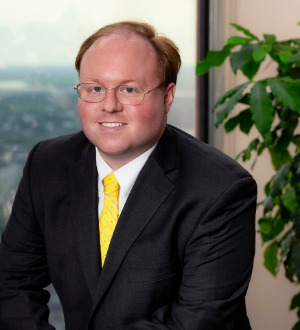At the start of the Coronavirus outbreak, which hit Louisiana and the Greater New Orleans Area particularly hard, Louisiana’s governor took action to suspend most legal deadlines as the State moved into its “stay-at-home” phase of battling COVID-19. Although Louisiana has bounced back remarkably well in the past two months (see this report from Forbes), the Governor’s emergency orders suspending legal deadlines remain in place. Below is a brief review of the timeline of these suspensions and how they affect claims.
THE PROCLAMATIONS
The Governor’s initial suspension of legal deadlines, “including liberative prescription and preemptive periods applicable to legal proceedings in all courts, administrative agencies, and boards,” occurred through proclamation 30 JBE 2020 Section (5)(A), signed on March 16, 2020. This included specifically any deadlines imposed by Louisiana’s Civil Code, Code of Civil Procedure, other civil statutes, and Criminal Code, among others.
These initial suspensions ran to April 13, 2020, but were extended to April 30, 2020, in proclamation 41 JBE 2020, Section (5)(H), signed on April 2, 2020. On April 30, 2020, the Governor issued proclamation 52 JBE 2020, Section (5)(H), again extending prescription until Friday, May 15, 2020.
Louisiana has recently moved into Phase 1 of re-opening, wherein most citizens are advised that they are safer at home. Restaurants, bars, gyms, and other facilities are allowed to open, but under restricted capacities. However, the Governor’s Proclamation 59 JBE 2020, Section (3)(H), continued the suspension of legal deadlines until Friday, June 5, 2020, unless otherwise extended or revoked. Therefore, as of this article, general legal deadlines remain suspended.
WHAT DOES IT MEAN TO “SUSPEND” A DEADLINE UNDER LOUISIANA LAW?
Essentially, by these proclamations, the Governor has stopped deadlines in civil suits and similar proceedings. Discovery deadlines, responses to motions, and any number of other certain dates have been placed on hold until at least June 5, 2020. But what does it mean to “suspend” a deadline? This has a specific meaning, generally, under Louisiana law.
The best and most meaningful example to use is the current suspension of prescription—what other states refer to as the “statute of limitations.” For example, the general tort prescriptive period in Louisiana is one (1) year from the date of loss. Once that year ends, a claimant loses his ability to file suit to claim damages from the tortfeasor.
Under Louisiana law, a period of suspension is not counted towards the accrual of prescription, but the prescriptive period runs again upon termination of the suspension. LA C.C. Art. 3472. In essence, a suspension stops the clock, which will begin to tick again right where it left off once the suspension ends. Contrast this with an “interruption” of prescription, in which the time that has not already run before the interruption is not counted. LA C.C. Art. 3466. In that case, the prescriptive period/statute of limitations begins to run “anew” from the last day of the interruption. Id. The clock is wound back to the beginning after an interruption occurs. Under a suspension of the prescriptive period, if your prescriptive period is five days, the counting would look like: 1 2 3 [suspension] 4 5. Under an interruption, it would look like: 1 2 3 [interruption] 1 2 3 4 5.
Therefore, to calculate the remaining prescriptive period for a potential suit that was suspended due to COVID-19 in Louisiana, you will count the time period up to the Louisiana Governor’s suspension of March 16, 2020. Each day from the beginning of the suspension until its end is not counted. Once the suspension terminates, you will begin to count again from where you left off.
If the current suspension until June 5, 2020, is the eventual end of suspension, it appears that prescription will have been “suspended” for eighty-one (81) days (March 16 to June 5). Therefore, if a tort was committed on March 15, 2020, the claimant will have one year and eighty-one days to file suit. Likewise, a claimant injured six-months before this suspension took effect will likewise have the benefit of an extra eighty-one days to file suit against the tortfeasor under the general one-year prescriptive period. A claimant injured during the suspensive period will have one year from the end of the suspension. The clock stopped upon suspension, and it begins to run from where it left off once the suspension ends.
WHAT HAPPENS WHEN THE EMERGENCY PERIOD ENDS?
Please note that this is only a general review and example. Once this emergency period ends, there is likely to be some litigation over what effect this suspension had in a number of different situations and under various laws. Furthermore, it is not out of the realm of possibility that some people will question what the governor meant by a “suspension,” regardless of the general definitions and legal understanding in Louisiana law. Once the COVID-19 dust settles, there are certain to be many legal issues to iron out.
Stay tuned to your local and national officials for the latest news and advice, and please stay safe!
LOUISIANA’S COVID-19 RESOURCES
All of Governor John Bel Edwards’s Proclamations can be found here. Other Louisiana COVID-19 resources and updates from the Governor’s office can be found here and here. You can also sign up for text notifications from the governor’s office and other local officials.


















